March: MEET THE MAKER
I’m mixing things up a little bit for the month of March. Instead of having a theme around making, I’m having a theme around MAKERS! I’ll be sharing interviews with local makers and learning all about their journey, their challenges and what it looks like to be a maker.
If you enjoy peeking into the minds of fellow creatives, join us!
Hello makers,
Today I’m sharing the story of Tamar Guse, a fibre artist living in North Canterbury, New Zealand. Tamar was born in South Africa but spent her school years in New Zealand before heading to Israel to connect with her extended family. During her time there she was introduced to basket weaving and has never looked back.
Tamar creates traditional baskets using imported reed as well as willow from her own coppice, but her true passion is weaving sculptural forms. Her sculptural work often starts from an interesting natural element, a piece of driftwood, an antler or twisted vines, the weaving then instinctively follows the form’s natural curves and character.
If you are in the South Island of New Zealand and want to learn to weave, Tamar teaches a range of basket-making workshops which you can check out on her website: tamargusefibreart.com.
Here is the story of Tamar Guse.
How long have you been working as a maker or artist professionally or as an entrepreneur?
8 years
Did you switch careers from something more traditional to become a maker/artist? Can you give us a little about the path you have taken?
I've always been an artist/maker, dabbling in everything from painting to pottery, macrame to sewing to graphic design. If I saw something beautiful I always had the desire to learn how it was done. I had a pivotal moment in 2014 when my first son was born and suddenly I didn't have time for anything and I so desperately needed something that was just for myself and not connected to being a mother. My neighbour was taking a basket weaving class every week and I admired her beautiful baskets for a long time before deciding that a basket weaving class might just be the time I needed for myself. Needless to say after a couple of classes I was hooked, I loved the beautiful shapes you could weave, the functionality and the mental therapy that weaving provided.
What does a typical work day look like for you?
A good work day would be one where I get up early, go to the gym, come back and help my partner get the kids ready for school. Once I've dropped them off at school, I have a solid few hours to work in my studio before pick-up and after-school activities. If I have a deadline looming I'll spend the evening working after the kids are in bed.
If you could tell young people who are thinking of starting a handmade business, what advice would you give them?
Don't be afraid to fail and learn from your mistakes. Nobody gets it right the first time or sometimes even the 100th time. I think the best things come when you give yourself the grace and time to experiment and grow.
I'm often curious when I see makers share all the different ways they make their art or business work financially. Can you share if you have various income streams?
My primary source of income comes from teaching basket weaving workshops. I teach at Papanui High School's Adult Community Education program in Christchurch, and I also offer classes at the Methven Summer School and the Go Wild With Weaving event in Golden Bay. In addition to teaching, I sell my artwork at galleries, exhibitions, and markets, as well as on my website and online marketplaces like Felt.
What are the most common challenges you face being a maker or artist?
Self-doubt is a big one. Your own subconscious fear of failure or not being good enough sometimes holds you back from even trying. Establishing a good routine and dedicating time to create can be challenging, especially when working from home.
How do you approach future planning in your creative work or business?
I make an effort to write down important deadlines and tackle tasks gradually. However, I still find this challenging, as I tend to procrastinate and rely on the motivation that a deadline provides to complete my work.
How do you combat the loneliness that often comes with working as a solopreneur?
Meeting other creators in markets and in my workshops has been amazing for that. I love meeting other people who share my passion for hand-crafted goods and feeling that connection when we'll have long conversations about the finer aspects of whatever art/craft we're talking about.
What are your most important values in making the work you do?
I value quality and only sell items that I am proud to create. I believe trying new ideas is important to avoid getting stuck in one place. When I am passionate about my work, it shows in the final product.
Do you experience imposter syndrome, and if so, how do you manage that? Any tips
For a long time, I struggled to call myself an artist. I felt like there was a specific goal I needed to achieve before I could use that label. However, I've come to realize that there are no milestones to meet; if you create—whether it's for yourself or others—you are an artist!
How do you stay motivated and adaptable as a maker/artist/entrepreneur in a constantly changing online world?
I find inspiration in the work of other weavers from around the world. I love exploring their incredible creations online and the countless ways to express oneself through weaving—where the only limit is your imagination! However, I have personally decided to step back from social media. While I understand that this might negatively impact my business, I have found the constant bombardment and the comparison game to be a challenge for my mental health.
How do you define success as an entrepreneur?
I believe success is what you define it to be. My definition of success is being able to do what I love, contribute to the household income, and be there for my kids when they need me.
How do you overcome creative blocks or periods of low inspiration?
I believe we experience periods of low inspiration for a reason. We aren't designed to operate at full capacity all the time; even our minds need a break. I often find that engaging in a hands-on project that doesn't require much mental effort can help spark creative ideas.
What resources or communities have been most valuable in your journey?
The basket-weaving community in New Zealand is small, and I have found it to be an invaluable source of support over the years. Just knowing that I can send an email to another basket weaver and receive helpful advice is an amazing feeling.
As a person who has only woven one wonky basket in her life, I’m in awe of the beauty that Tamar creates. I look forward to following her journey into sculptural weaving and wish her all the best with her career as an artist. You can read more about Tamar and lots of other incredible local makers on the Felt website in their Meet the Maker series.
Happy making,
Esta
P.S. I’m not paid for any affiliate links or by any makers or artists to share their work. In fact, I have to work another job to keep the bills paid. But if you value hearing these stories and reading about creativity, then maybe think about becoming a paid subscriber. It’s like the price of a meat pie (here in NZ) and you can cancel at any time :)
Seek to Make is an exploration of creativity and making. Each month, I share a monthly theme around making, showcase inspiring makers, share tips, tools and encouragement. Together let's get curious and immerse ourselves in the art of making!


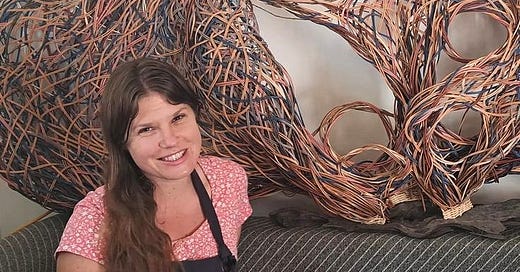


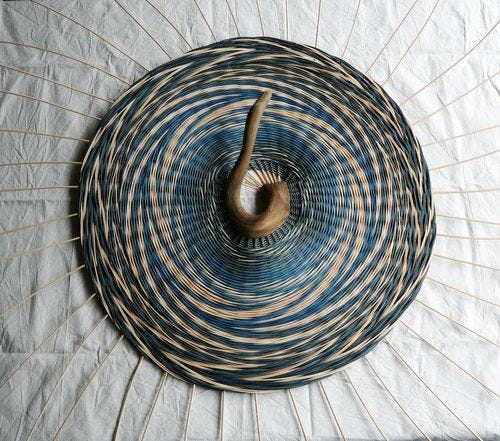
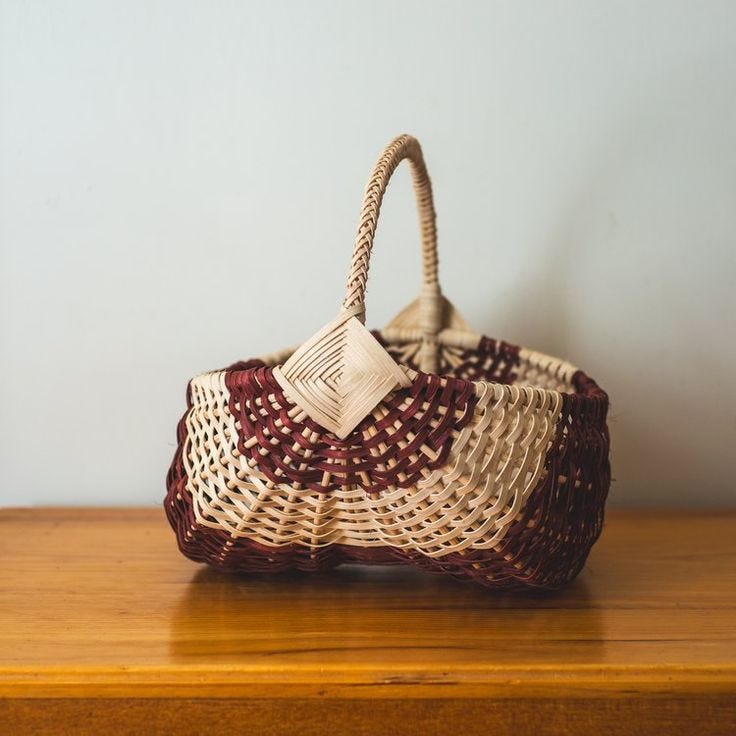
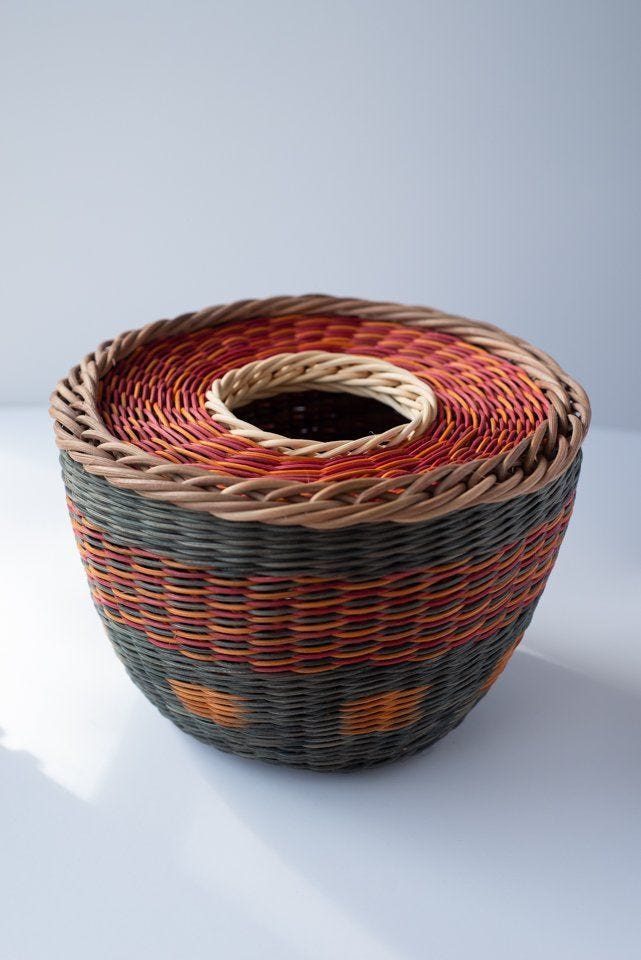
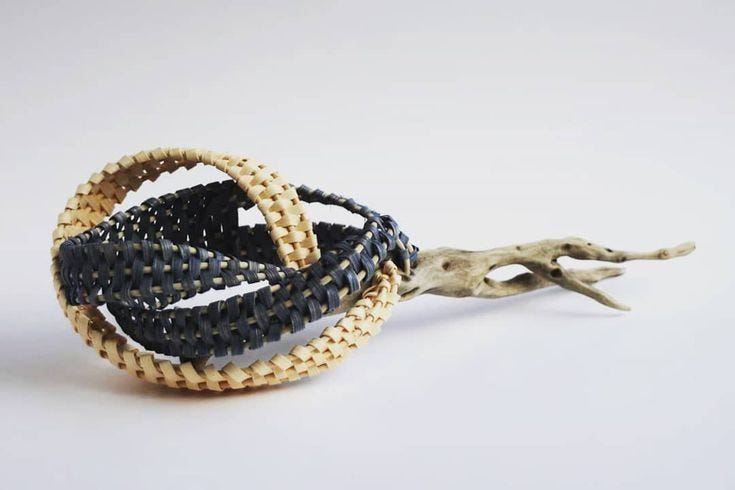
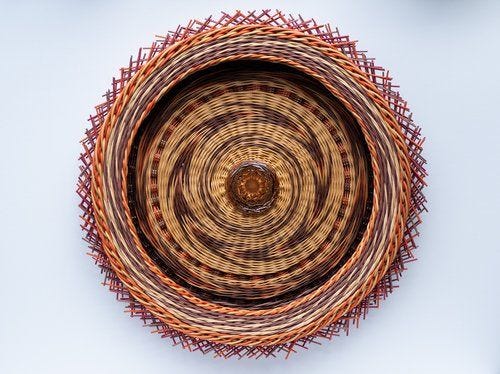
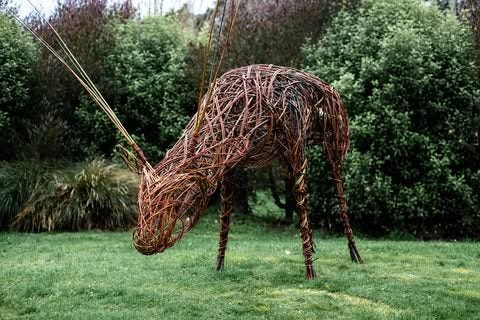
Wow! Isn't Tamar's work amazing! Her definition of success was very sincere too. It is also interesting how a lot of artists struggle with self doubt and whether they actually see themselves as 'artists'. As she so aptly said, if you create then you are an artist.